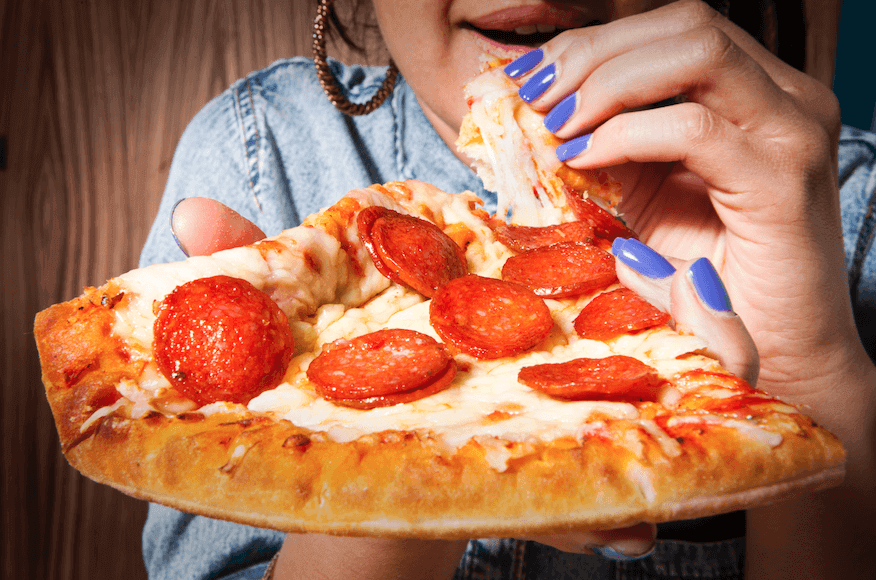
In a world of lightning-fast technology and constant industry disruption, one skill has risen as a top necessity for older companies to survive:
Innovation
We’ll be the first to tell you that refusing to adapt and adhere to modern traveler tastes, behaviors and preferences will be the fastest road to failure.
NB: This is an article from Tambourine
We love seeing how some older companies in other industries own their responsibility to not only keep up with technology, but to embrace it as a product itself… and Dominos (yes, the pizza maker) is the perfect example of this.
How did this consumer-centric company “toss” aside their old ways, refuse to play it safe and innovate? A recent article in the Harvard Business Review talks about how Domino’s focused on innovation… and reveals a number of important lessons hotels can borrow:
1. Take Another Slice of Technology
Dominos in Action:
Half of Dominos’ headquarter office works on software and analytics. And, the company now proudly proclaims that they are just as much a technology company as a pizza company. This has transformed their customers’ ordering experience, giving them options to order by voice on the Domino app, by text or emoji and allowing them to track their delivery order.
Hotels Lesson:
Not only are your guests’ lives immersed in technology, but their guest experience with you is deeply affected by technology as well. And as millennials become the primary market audience, your ability to present a frictionless “technology experience” will affect your success. Can guests book easily on mobile? Can they order room service from an app or in-room iPad? Can they check in without standing in a line after a long flight? What are you doing to use technology to remove friction from the booking and stay phases of customer interaction?
2. Your Ingredients Aren’t Tasty Enough
Dominos in Action:
Instead of hiding behind inventive marketing, Dominos opted for transparency and some well-placed self-deprecation. When they engineered their comeback, their effort included ads that admitted their pizza wasn’t the best, even producing a commercial featuring customers comparing their pizza to cardboard.
This risky strategy worked in their favor, as it endeared customers and was the catalyst for the chain to reinvent all of their pizzas with better ingredients and an expanded menu that is now worthy of their customers’ praise. They now credit their improved pizza product as the centerpiece for their successful rebound.
Hotels Lesson:
Here’s the universal truth: successful hotel marketing strategies start with a remarkable product. You can’t simply rely on marketing dollars to magically pull in more bookings. Too many hotels invest in clever, flashy campaigns, without making any significant improvements to their properties itself or investing in extraordinary experiences that will wow guests. Advertising should never receive blame for a hotel’s failure or credit for its success. No amount of marketing can overcome an inferior guest experience.
3. Refuse to Play it Safe
Dominos in Action:
In order for Dominos to engineer such a triumphant comeback, it was essential to scrap their current marketing model and blaze into something totally different. They unleashed a series of innovative ways for customers to interact with the brand and order, including text- and emoji-enabled ordering, a new crowd-sourced delivery car design and an Uber-like pizza tracker that allows customers to track their pizza delivery. This positioned their 56-year-old company as a nimble, tech-enabled disruption machine, instead of the dinosaur they could have been if they had not taken any risks.
Hotels Lesson:
Most owners want to flip their assets reasonably quickly. Asset and management companies want to earn their fees and property-level folks want to keep their jobs… so many hotels are apathetic about innovation. They want to fly under the radar, quietly market their properties without fanfare and stay true to how things have always been done. These are prime examples of ‘omission bias’ (worrying more about the potential consequences of a bad move, rather than the dangers of apathy and inaction) and ‘loss aversion’ (playing to avoid losing, instead of playing to win).
Both of these principles do nothing but stifle your hotel’s creativity and innovation, which (as we stated earlier) is essential to survive in a world of increasing competition and non-stop disruption.
Lesson learned?
Doing nothing and continuing to market your property ‘as usual’ is the riskiest move of them all.




